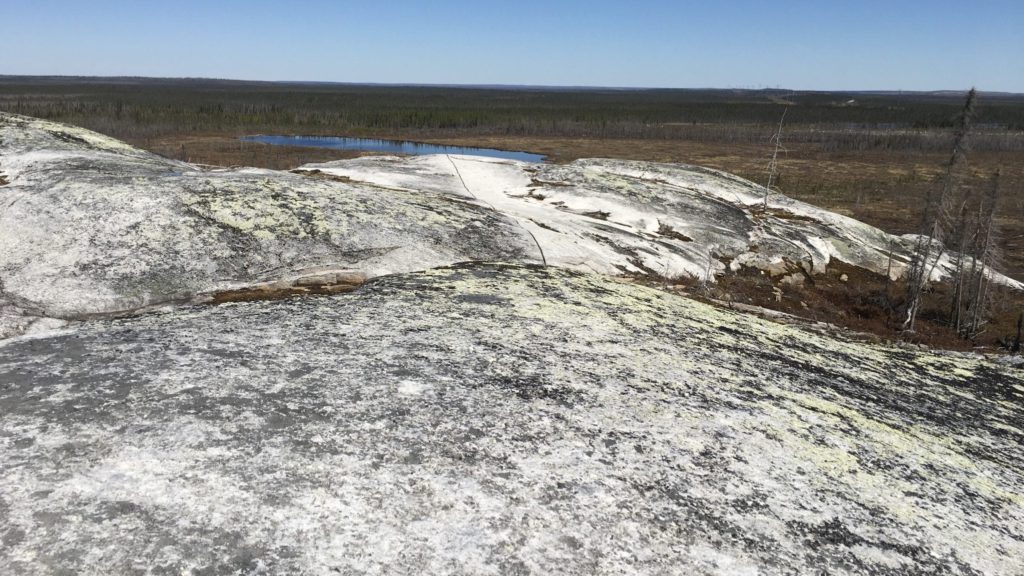MINING;NOT GREEN NOT SUSTAINABLE
Bruno Venditti | January 16, 2023 |

The James Bay Lithium Mine Project is located about 100 kilometres east of James Bay and the Eastmain Cree Community in Quebec. (Image: Galaxy Resources)
The Canadian government said on Monday it approved Galaxy Resources’ James Bay lithium project in Quebec.

As proposed, the spodumene operation would include an open-pit mine and concentrator facility, tailings, waste rock, ore, and overburden storage areas, as well as related infrastructure. It is expected to produce an average of 5,480 tonnes of ore per day over a mine life of 15 to 20 years.
“This is an important decision for Canada,” Minister of Natural Resources Jonathan Wilkinson said in a statement. “The James Bay Lithium Mine Project will produce a key ingredient of clean technology like electric vehicle batteries and solar panels.”
Galaxy also owns its flagship Mt Cattlin mine in Western Australia and the Sal de Vida project, located in Catamarca Province on the Salar del Hombre Muerto, approximately 1,400km northwest of Buenos Aires, Argentina.
The Government of Canada recently announced its Critical Minerals Strategy in which lithium is listed as one of six top critical minerals due to its importance in the clean technology sector, in particular the manufacturing of rechargeable batteries for hybrid and electric vehicles.
(With files from Reuters)
Guilbeault gives green light to James Bay lithium mine with 271 conditions
, The Canadian Press
Environment Minister Steven Guilbeault says a new lithium mine in northern Quebec can go ahead with more than 270 conditions to protect wildlife and respect Indigenous use of the lands for traditional purposes.
The 36-page approval uses the boilerplate language for Impact Assessment Act decisions, indicating that the minister has determined following a review that the project is "not likely to cause significant adverse environmental effects."
In a tweet publicizing the approval Guilbeault said the mine will go ahead in partnership with local Cree communities.
"This is what a good project is all about and these critical minerals are key to building a low-carbon economy," he said.
The James Bay mine is expected to produce lithium for up to two decades, mainly for use in North America's electric vehicle and battery manufacturing industries.
Demand has soared for lithium used in lithium-ion batteries to charge consumer electronics and for renewable energy supplies and storage. More than half the world's lithium supply in 2021 went to electric vehicles, an amount expected to triple by 2025. By 2030, demand for lithium is expected to grow at least 500 per cent.
Lithium is one of the six critical minerals identified as a priority in the federal government's new critical minerals strategy, which aims to make Canada a global mining powerhouse for the metals and minerals used in the electric vehicle industry.
The only active lithium mine in Canada today is owned and operated by China's Sinomine Resource Group in northern Manitoba and all of that lithium is shipped to China.
China is the dominant player in lithium processing, and processed two-thirds of the world's supply in 2021. China doesn't have stable or large domestic supplies of lithium and relies on imports from mines elsewhere, including in Africa, South America and now Canada.
Chile, Australia and Argentina together hold about 75 per cent of the world's known lithium reserves, and China about nine per cent. Natural Resources Canada says this country holds about 2.5 per cent.
Prime Minister Justin Trudeau and other western allies have indicated a desire to cut China's dominance in the critical minerals industry and develop a supply chain that is more reliable and less vulnerable to global political disputes.
There are several proposed projects for additional lithium mines, as well as plans to restart production at a Quebec mine that went bankrupt and was sold.
The James Bay project is the first Canadian project for Australia's Allkem and is supposed to start producing lithium in 2024.
The project is supposed to create 280 jobs during the construction phase and about 160 on average once in operation.
Conditions for the approval include monitoring and reporting on environmental conditions such as soil conditions and tailings, as well as preparing and executing plans to mitigate impacts on local fish and other wildlife, such as woodland caribou.
The mine is expected to produce about 846,000 tonnes of carbon dioxide or its equivalent in other greenhouse gas emissions over its two-decade lifespan, including construction. Annually its emissions will max out at 48,000 tonnes, or about what is produced over one year by 10,000 passenger vehicles.
No comments:
Post a Comment